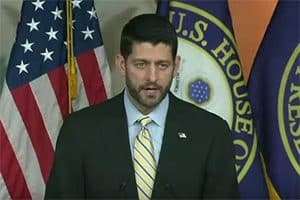
Post-911 Asthma Control In Adolescents. The journal Pediatric Research has published a study analyzing asthma control in adolescents who were exposed to the World Trade Center attacks on 9/11 and diagnosed with asthma afterwards. Researchers analyzed asthma control 10 to 11 years post-9/11 in adolescents who were exposed. The WTC attacks produced a toxic dust containing many hazardous substances. Exposure […]
 Post-911 Asthma Control In Adolescents. The journal Pediatric Research has published a study analyzing asthma control in adolescents who were exposed to the World Trade Center attacks on 9/11 and diagnosed with asthma afterwards. Researchers analyzed asthma control 10 to 11 years post-9/11 in adolescents who were exposed. The WTC attacks produced a toxic dust containing many hazardous substances. Exposure to these conditions is now linked to numerous health problems.
Post-911 Asthma Control In Adolescents. The journal Pediatric Research has published a study analyzing asthma control in adolescents who were exposed to the World Trade Center attacks on 9/11 and diagnosed with asthma afterwards. Researchers analyzed asthma control 10 to 11 years post-9/11 in adolescents who were exposed. The WTC attacks produced a toxic dust containing many hazardous substances. Exposure to these conditions is now linked to numerous health problems.
Data was gathered through the WTC Health Registry adolescent Wave 3 survey from 2011 to 2012. The survey contained information on asthma diagnosed by a physician after the attacks, the extent of asthma control, probable mental health conditions and behavior problems. Statistical analyses were performed to determine the relationship between asthma and level of asthma control and 9/11-exposure, mental health and behavioral problems and unmet healthcare needs.
The World Trade Center Health Program provides free medical treatment and monitoring to 9/11 victims. It is one of two programs funded through the Zadroga Act; the other is the September 11th Victim Compensation Fund. When the Zadroga Act was reauthorized at the end of 2015, the WTC Health Program was reopened for another 75 years and the VCF an additional five years.
According to the WTC Health Program, more than 37,000 people have at least one 9/11-related health problem.These conditions include chronic bronchitis, reactive airway disease syndrome, gastroesophageal reflux disease, sleep apnea and sinusitis. Exposure to 9/11 has also been linked to over 60 different cancers.
Newsday recently reported that a new wave of patients enrolled into the health program, and physicians are saying that these patients are more ill. During a 1-year period ending June 30th, the WTC Health Program received 2,500 new enrollees, data from the Centers for Disease Control and Prevention shows. “What seems to be so surprising is that, even though it’s been 15 years, we continue to have new enrollees into the program,” said Dr. Benjamin Luft, director of Stony Brook’s clinic, according to Newsday. “We feel that the new people who are enrolling tend to be sicker than the old enrollees.”
The personal injury attorneys at Parker Waichman LLPoffer free, no-obligation case evaluations. For more information, fill out our online contact form or call 1-800-YOURLAWYER (1-800-968-7529).
Further Zadroga Act resources:


